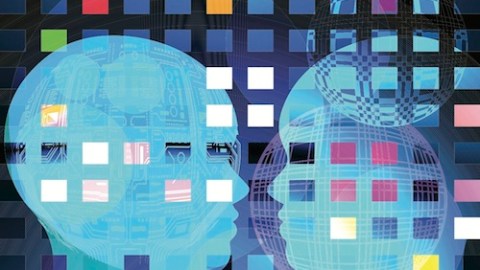Quantum Mechanics Could Yield Ultimate Privacy

Editor’s Note: This article was provided by our partner, RealClearScience. The original is here.
Code-makers and code-breakers are locked in an eternal conflict. Thus far, they’ve matched each other pretty much blow for blow, with triumphs by one side followed by resurgences from the other. But when quantum computing arrives, that balance could be forever altered.
RSA, a widely used public key cryptosystem developed back in the 1970s, allows for secure data transmission. It’s based in the practical difficulty of factoring two large prime numbers. But while RSA proves difficult to crack for both modern day computers and our meager human minds, it could very well be child’s play for a quantum computer. In the next few decades, RSA may be obsolete.
“Confidence in the slowness of technological progress is all that the security of our best ciphers now rests on,” laments Artur Ekert and Renato Renner. But the scientist duo hasn’t given up hope for privacy just yet. In a new paper published to the journal Nature, Ekert, a Professor of Quantum Physics at the University of Oxford, and Renner, a Professor of Theoretical Physics at ETH Zurich, Switzerland, elucidate how the very same system that gives rise to quantum computers — quantum physics — can be blended with a dash of free will to generate a form of privacy so flawless that not even the NSA could eavesdrop.
According to Ekert and Renner, the method for achieving perfectly secure communication is as simple as constructing a cipher, basically a key. Instead of unlocking doors and being composed of metal, however, this key takes the form of an algorithm, one that can transform a jumbled mass of meaningless information into a clear and precise message.
“It is vital though that the key bits be truly random, never reused, and securely delivered…” The researchers say. “This is not easy, but it can be done.”
To sate these requirements, particles of light — a.k.a. photons — can be utilized. Governed by quantum theory, polarized photons can be used to generate random, yet counter intuitively correlated outcomes. Using two matched devices designed to read those outcomes, two people can transmit a cipher. If an outsider were eavesdropping, they would just see randomness.
But surely the makers of such a device would be able to listen in on conversations? Not so, says Renner. With a little bit of freedom, randomness can be amplified.
“As long as some of our choices are not completely predictable and therefore beyond the powers that be, we can keep our secrets secret.”
“It all looks bizarre and too good to be true,” the researchers admit. “Perfect privacy, secure against powerful adversaries who provide us with cryptographic tools and who may even manipulate us? Is such a thing possible? Yes, it is, but ‘the devil is in the detail’ and we need to look into some practicalities.”
Vitally, the photon detectors within the devices would have to be keenly tuned. A load of theoretical observations about quantum physics would also have to manifest in the real world. Even if ultimate privacy is possible, it’s likely decades away. Although it is a very intriguing possibility, especially today, when secrecy is the exception, not the rule.
(Image: Shutterstock)




